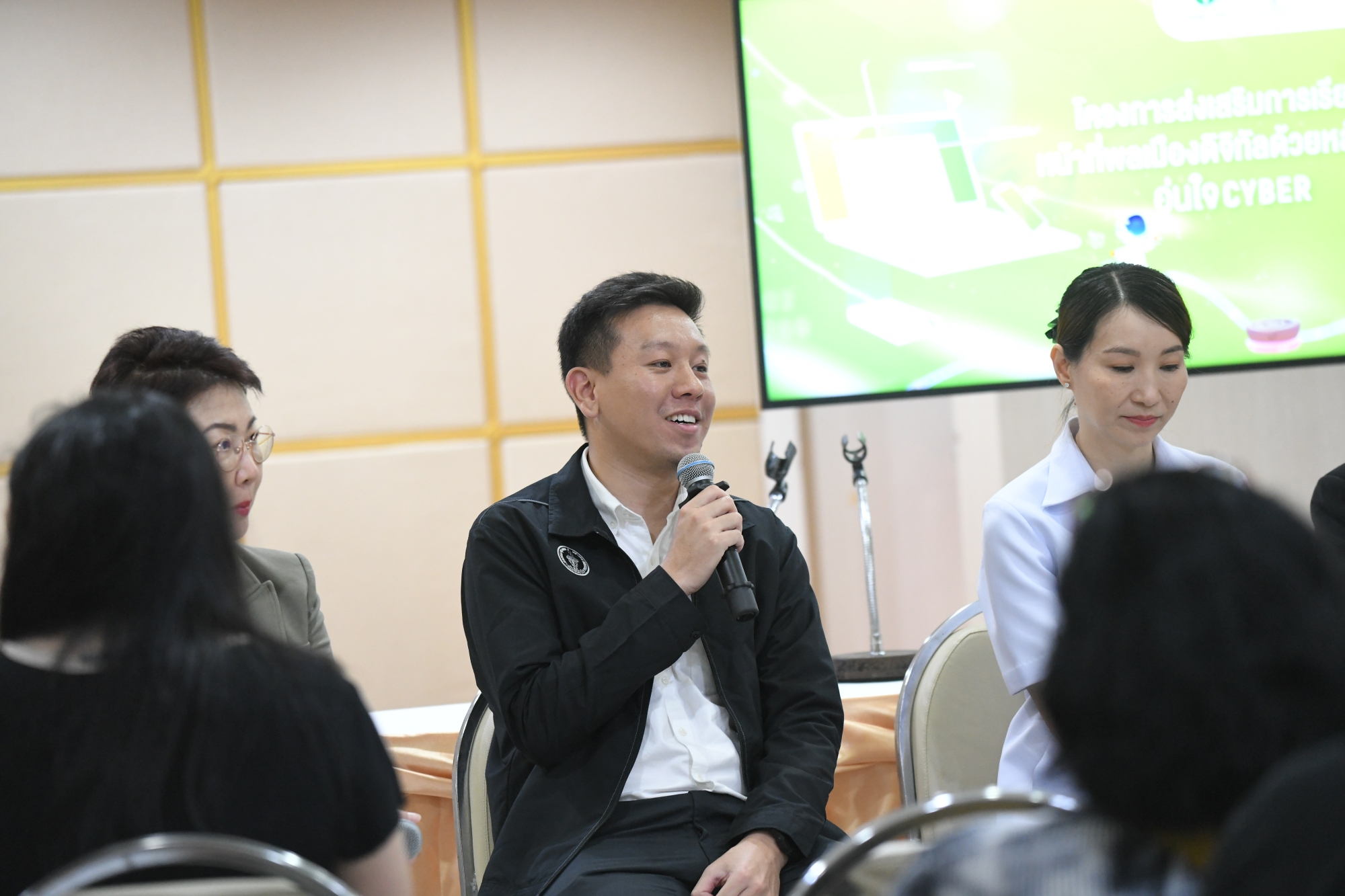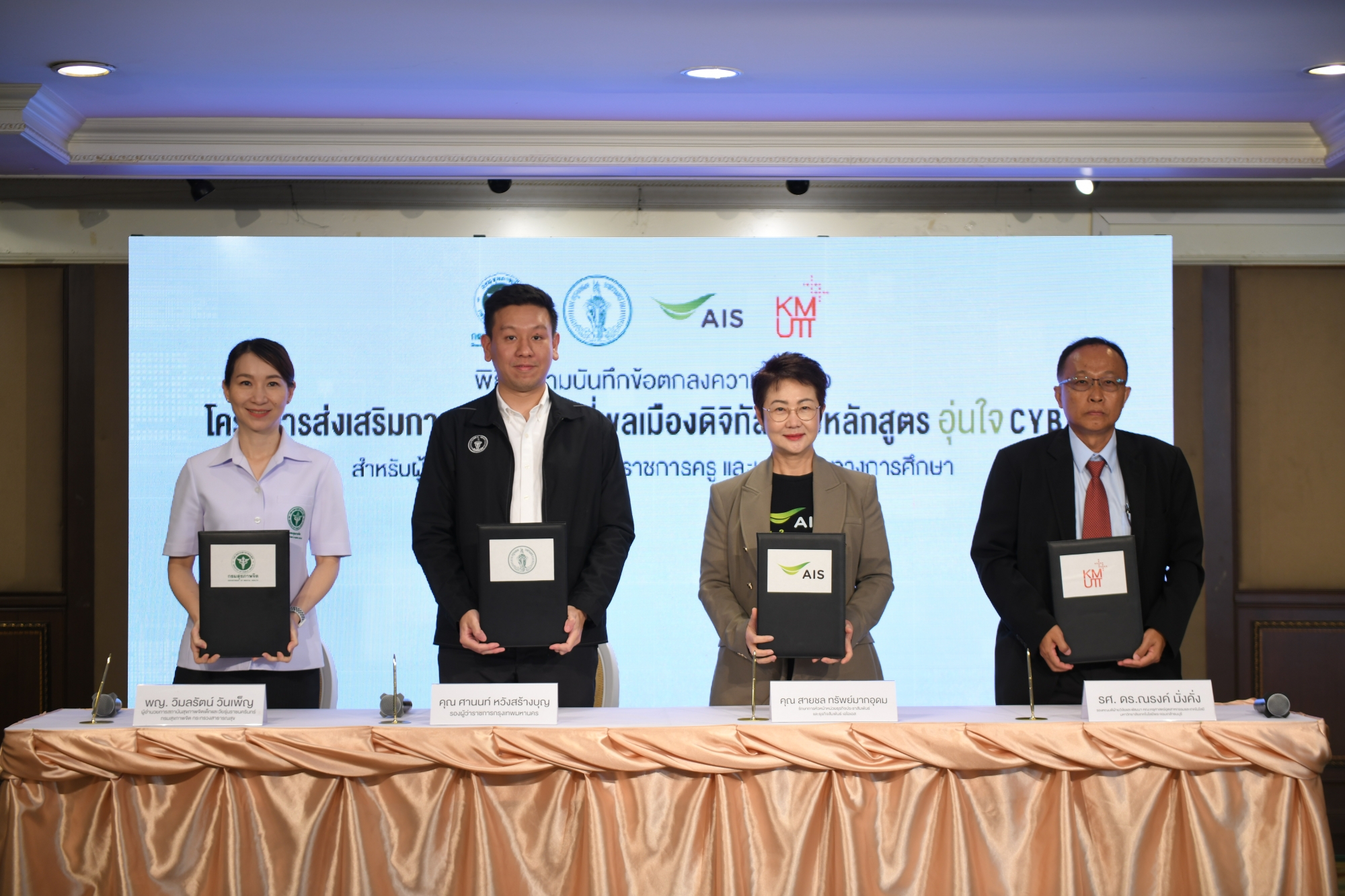
The Bangkok Metropolitan Administration has signed a pact with Advanced Infor Services Plc and two other agencies to teach students at BMA schools how to protect themselves in cyberspace.
BMA deputy governor Sanon Wangsrangboon signed a memorandum of understanding with AIS, the Mental Health Department, and King Mongkut’s University of Technology Thonburi (KMUTT) to adapt AIS Oonjai Cyber (Surfing cyberspace with peace of mind) courses for 437 BMA-run schools.
The signing ceremony was held on Friday.
Sanon said the course will be taught to some 250,000 teachers, students, and staff of BMA schools, starting in the current school year.
It will teach basic skills to students to increase their “Thailand Cyber Wellness Index” level so that they know how to use social media and digital technologies properly and safely.
Sanon said the project is part of the BMA’s policy to reduce social gaps among students so they can catch up with the fast-changing world and digital technologies.
He said each school would design its own core cyber education course with guidance from the three partners. The course of certain schools may be used as models for other schools to follow.
As well as core courses, there will be also “after school” and “Saturday school” courses.
The project’s success will be gauged according to how teachers, students, parents, and the community have learned how to protect themselves against cybercrimes.
The course is part of the BMA’s digital classroom policy, which has so far set up computer labs in 93% of its schools. Sanon said the BMA is still open to donations of notebook computers for use in the labs.
Speaking at the same ceremony, Dr. Wimolrat Wanphen, director of the Child and Adolescent Mental Health Rajanagarindra Institute, said the Mental Health Department joined the programme with a goal to help children and adults use cyberspace with peace of mind and safety.
Assoc Prof Dr. Narong Mungkung, deputy dean of KMUTT’s Faculty of Industrial Education and Technology, said KMUTT played a role in the project by integrating the AIS course and ideas of other partners into practical learning for students.
The course should allow students to understand threats and be cautious when using social media and digital technologies, Narong added.
Meanwhile, AIS acting spokeswoman Saichol Supmakudom said the latest Thailand Cyber Wellness Index showed that young people still needed to be taught to understand how to protect themselves against cybercrimes.
Saichon said the AIS course has already been taught in over 29,000 schools nationwide under the Education Ministry’s Basic Education Commission’s Office. The course has also been adapted and taught in some universities, including Rajabhat Chiang Mai University and Rajamangala University of Technology Lanna.
Saichon added that Oonjai Cyber will be taught under the “four Ps”, or four professional skill modules:
– Practice – Learners will be taught to use digital technologies properly
– Personality – Learners will be taught to guard their personality in the cyberspace
– Protection – Learners will learn to raise guards against cyber threats
– Participation – Learners will learn how to interact with others via online communications properly.




